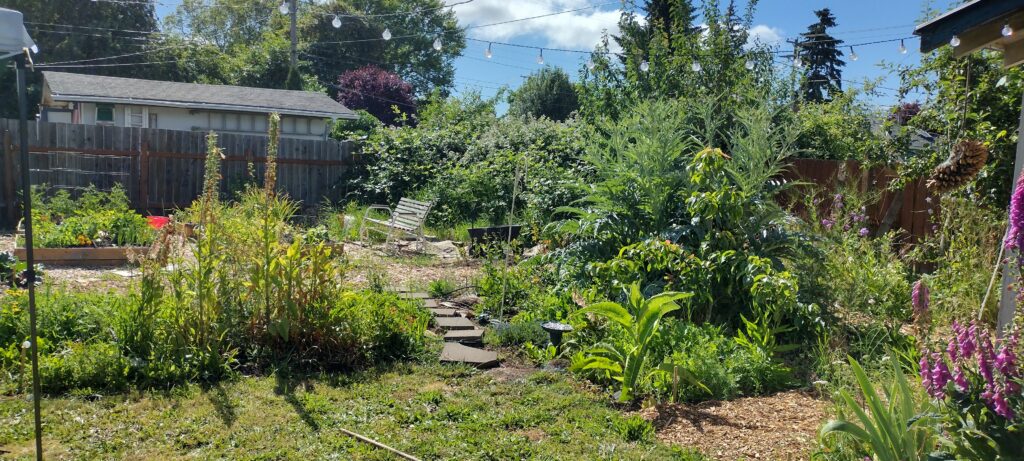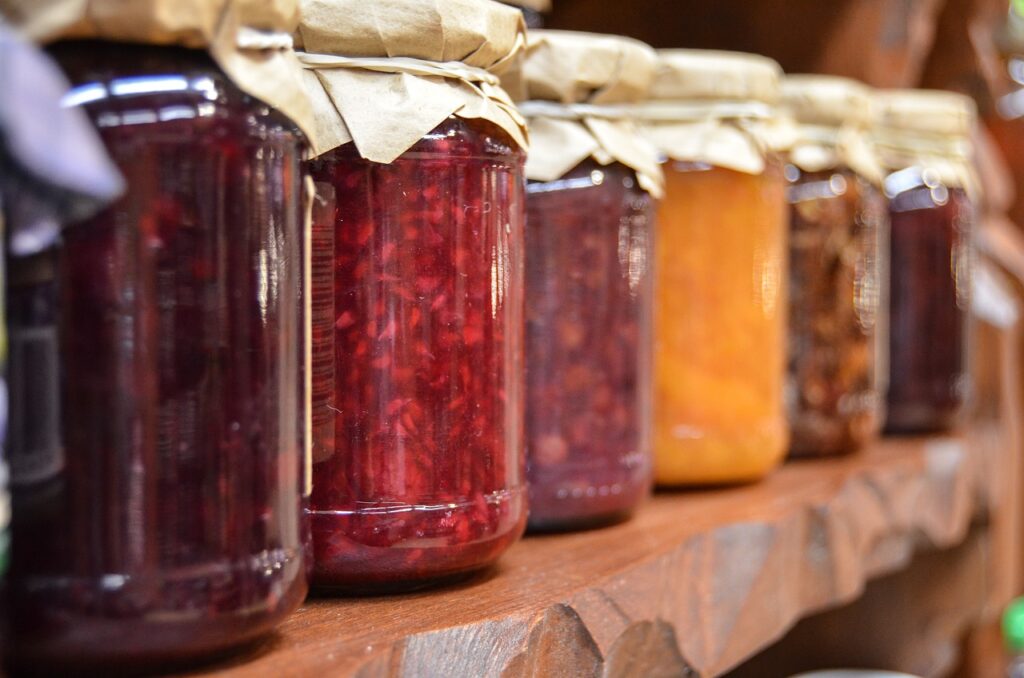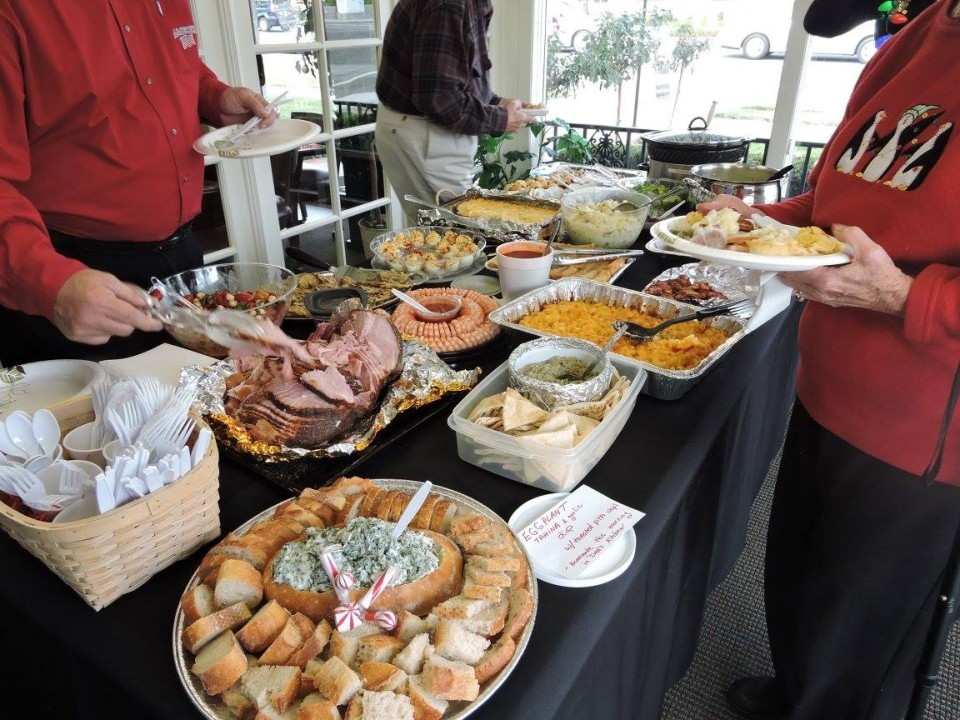I am extremely frugal. Sometimes to a fault, I’ll admit that. I grew up on a farm where everything was used and reused until it was literally not able to be anymore. But then, someone might fix it up and give it even more life. I actually grew up next to a landfill and my dad and siblings would bring things home from the recycling station to fix up and use around the farm. My dad made us a sled one winter – he made it from the hood of the rundown car that his parents had driven when he was a kid! My mom sewed us clothing and toys. She also canned and preserved food, which we grew in the fields.
So I’ve gotten pretty good at seeing opportunities where others see junk and at repurposing and upcycling. Here are 10 guidelines I’ve thought of for maintaining a frugal lifestyle and seeing opportunities! You don’t actually have to consider them to be commandments – that was just a nice parallel AND good for the algorithm! Just use these as a guideline and starting point to help you along your path toward becoming less reliant on corporations!
1. Accept the chaos
When you’re thrifty, you may have many projects going at one time. That’s ok! Accept that everything will not match, but variety is the spice of life! Accept that you will make mistakes. And always remember that your chaotic life is someone else’s dream life.

This has been brought up to me so many times. When I held my graduation party in my backyard, all I saw was the chaotic flowers that weren’t quite blooming yet, the unfinished paths, the giant pile of woodchips in my driveway – but I got so many compliments on my yard. In fact someone literally said it was their dream garden. Another time I held a seminar in my home, and someone told me she loved my colorful home. I always think of it as so humble.
I grew up in a house that was never finished. My dad always had a project that was going. One winter, while my mom took a vacation, he started renovating the kitchen. I think it took a year before we had a fully working kitchen again. My mom always had knitting and sewing projects. She still has tubs of fabric and yarn she bought for projects in the 80s. It’s ok. Life is chaos. It’s always moving, always changing. It’s an adventure.
2. Be patient
What you want or need will likely come to you in time. When I put it out there that I need something, my community often (not always, but more often than not!) has what I need. There have been so many times I have asked on the Buy Nothing board for things that we needed, and someone just had one cluttering up their space that they were happy to get rid of. For the price of a little driving and a gracious thank you, I’ve gotten bikes, pots and pans, clothing, artwork, and more!
Keep a list of things that you’d like to have and bring it with you to estate sales and thrift stores, so you don’t always have to run out and buy something the moment you think you need it.
However, meanwhile…
3. Keep your eyes open
If you keep your eyes peeled, you will start noticing things that are inexpensive or free. Join free groups, take drives around town, go to estate sales. You’ll start to notice good deals. I keep a list on my phone of things that would be nice to have, but that aren’t important enough to go buy new.
Tips: If you live in a college town, drive around the student housing at the end of the school year. You would be AMAZED at all the stuff that gets thrown out.
Join Freecycle or Buy Nothing groups. These can be lifesavers!
Go to estate sales. I prefer estate sales to thrift stores. Thrift stores are already curated and priced, but often at estate sales they don’t know what’s valuable to a homesteader like yourself. I have found so many exciting and wonderful quality things at estate sales. And they generally have a half price day on the last day. Estate sales often post photos of the items that are for sale on their Facebook page or Instagram, so you can have an idea of what will be there. I love to go when I see a full kitchen or tools. But I’ve also gotten really nice quality bedding and furniture from estate sales.
Join local gardening groups. In the spring, and really all through the year, people are always offering free plants as they take cuttings, prune their plants, or plant too many of different varieties. In some areas, I bet you could fill your entire garden with free plants. Most of my flowers and herbs came free from gardening groups.

4. Do not covet
First, recognize that homesteading and life are not competitions. You can do your own thing. You don’t have to “keep up with the Joneses”. Life isn’t a competition, it’s a journey. Also, be realistic about what you actually need, versus what you want.
In fact, I think it’s more fun to do my own thing. Sure, I make mistakes. Sure, people sometimes look at me funny. That’s ok. They don’t have to understand. When your neighbors buy a camper that takes up half the driveway, take that as your invitation to take up your driveway and plant a native pollinator garden there. Even if I wanted a camper, I’d want a teardrop trailer that I build myself!
5. Don’t be picky
Sometimes, someone will offer you something you need, but it’s not your favorite color or style. Seriously consider taking it. You can always replace something later. Or maybe, as you embrace your chaotic frugal life, you’ll find that it fits right in!
Taking what you’re offered is also a part of living and eating seasonally. If someone offers you a bushel of apples- take them. Eat some. And then can the rest. Did you see an amazing deal on fresh pineapple? Dehydrate or can it so you have it later. Create a list of what you can do with different foods and consult it when you have too much of something.
Learn skills to turn something that isn’t quite right into something that is perfect. Not the right color? Spray paint is easy and fast! Once you learn some skills, you’ll see possibilities everywhere. Take the base of an old kitchen island, or even a dresser and put a new top on it that matches your kitchen.
People will offer you plants. Do think about concerns like spreading or whether you want poisonous plants around children. But in general, take the plants. Your garden, the pollinators, and nature will thank you with their bounty.
But also,
6. You don’t have to be cheap to be thrifty
Sometimes you will need things. When you do buy things, make your purchase for their value, their quality, their long-lastingness. Sometimes you will want things. It’s ok. You don’t always have to close up your wallet. I always wanted an olive tree. I bought myself an olive tree.
Also, don’t forget about bartering! Most larger businesses won’t be interested, but small local businesses may be willing to trade if you make or have something they want or need. And trade with friends! Have a holiday cookie party where everyone brings 3 or 4 dozen of one type of cookie packaged in dozens and everyone leaves with 3 or 4 that they didn’t have to make.
What do you have or make that is valuable to someone else? Homebaked or canned goods? Do you sew, embroider, or mend? These are really valuable skills.

7. Learn to love what you have
If you’re growing it, eat it. Resist temptation. You probably don’t need that thing. Think of the mess it will make. And don’t be wasteful – repurpose, reuse, repair. Learn to make things yourself.
Tips: If you’re growing it and don’t know how to use it, don’t waste it. Look up recipes! Almost everything is delicious covered with cheese. This is the whole point of eating seasonally. If you have a glut of strawberries, you will get sick of them now, but you will look forward to them next year. Look up how to can, dehydrate or otherwise preserve foods that you have too much of.
Learn to build simple things for yourself. The internet is a wealth of free information on how to do or build pretty much anything. A simple set of tools is likely all you’ll need. Go bigger and learn even more skills if you’re so inspired.
Learn to mend. It’s a great activity for long winter nights when you’re stuck inside, and if you use visible mending techniques, you can create some beautiful works of art with your clothing!
8. Be generous
Share your bounty in the same spaces you have received. If you get something on freecycle, consider giving something that you don’t need on freecycle.
Separate your plants as they become overgrown and share them in the same communities you have received from. Share your excess produce, share recipes, even share prepared foods to build a resilient and fruitful community.
Instead of running your bag of outgrown clothing or kitchen stuff you no longer need to the goodwill, offer it on the Buy Nothing board where you have gotten things. Did you plant too many of something, don’t just compost the extra seedlings, offer them in those gardening groups. Return the love that you have experienced.
In fact, if you have experienced a random act of kindness, try to pass it on to someone else to experience also.
9. Be humble and gracious
Thank your community for their help in making your life so beautiful and bountiful. Receive help and advice with grace. Share photos. Tag people who have given you things. Always say thank you. Maybe even add what you’ll be doing with the item. People like to hear that what they gave will get good use.
It should go without saying, but if you get something for free, ALWAYS pass it on for free when you’re finished with it. Never charge money for something you recieved for free.

10. Include everyone
Bring your kids and other family or community members into the garden. Let them get their hands dirty. Involve them. Share the bounty. They’re more likely to try foods that they helped plant. They’re more likely to care for a space they helped create. Teach about plant diversity and the benefits of having a variety of plants. They will take this into other parts of their life.

Growing up on a farm, with a frugal lifestyle has ingrained these values into my lifestyle. They’re not just guidelines, they’re really a part of me. But just like when you’re getting started with homesteading, or really, anything new – take it just one step at a time. Do what you’re able to do, and what you feel comfortable with. It’s a slippery slope, before long you’ll see possibilities everywhere!
Which commandment will you be starting with? Let me know in the comments!





